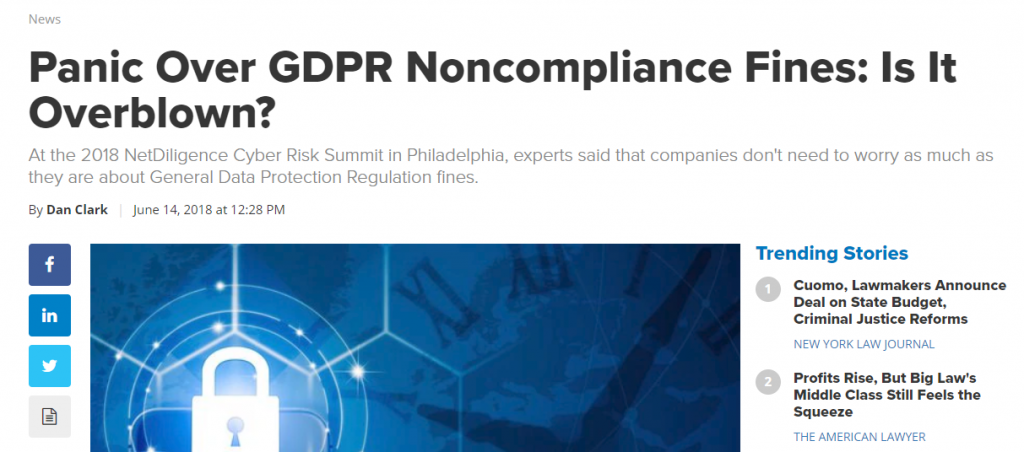
A year has passed since GDPR came into force. In our recent webinar, Director of Course Development Nick Henderson and Data Protection Officer Ruth Cohen looked at how businesses dealt with GDPR. Ruth gave guidance on how to make sure your organisation maintains compliance as the regulation enters its second year.
The webinar covered:
- A review of the requirements under GDPR
- How often should staff be trained on GDPR?
- What measures should be taken to maintain compliance?
- How to avoid data breaches and what to do in the event of a breach
- Answering any GDPR questions from registrants
Key takeaways
- 19% of attendees said they are “very confident” the data they work with is sufficiently protected
- 20% of our attendees are still unsure of what privacy by design and privacy by default mean
- Organisations should run “fire-drill” like exercise to ensure they are equipped to deal with any data breach
- Targeted GDPR training is recommended as it enables those in specific roles such as marketing, HR and IT to take the training most relevant to them







